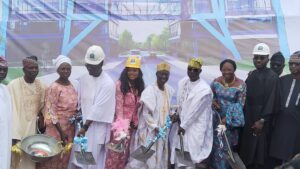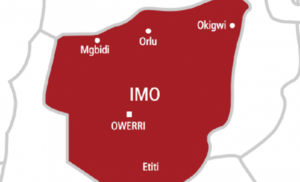Builders Seek Alternatives As Cement Price Soars
Cement is a major commodity in building. However, the recent surge in its price has thrown many Nigerians into a shock, leading to a plethora of abandoned projects. At the moment, the commodity sells between N10,000 and N13,000; depending on the part of the country, despite assurances by manufacturers to peg the price at between N7,000 and N8,000
The Minister of Housing and Urban Development, Ahmed Dangiwa, who issued a threat on Tuesday during a meeting with cement and building materials’ manufacturers, said, “Honestly speaking, we have to sit down and look at this critically and know how you should go back and think of it.
“The government stopped the importation of cement in order to empower you to produce more and sell cheaper. Otherwise the government can open the borders for mass importation of cement and the price will crash, but you will have no business to do.”
Bricks, timber, fibre blocks to the rescue

Speaking to Daily Trust, the President of the Nigerian Institute of Architects (NIA), Mobolaji Adeniyi, noted that the ripple effects which the increases in the prices of cement had triggered all professionals in the building and construction sector to go back to the drawing board and look for alternatives
She said, “On alternatives, we are already proposing stabilised earth blocks, otherwise known as burnt bricks, which are produced with laterite. In the production process, only a little bit of cement is added, which is usually in a very small quantity. As a matter of fact, these buildings are eco-friendly, cooler, and even bullet proof, and we are already going into research on them.
“Another alternative is red bricks. Nigeria can start using that, although we don’t have enough to meet the demand. Only three manufacturers are producing red bricks in Nigeria.
“Timber is another thing we should look at, but due to deforestation it is not advisable for us to do that on a large scale.
“There are also fibre blocks which are even lighter and cheaper because the cement content is little. The fibre block building system is very cost effective and quick to construct, lowering labour costs and time of completion.
“We seriously need to start looking at these alternatives because before cement, we were living in houses.”
She noted that Nigerians had too much appetite for foreign goods which needed to be cut down immediately as it was one of the major reasons why the prices of cement were going up.
She called on President Bola Tinubu to as a matter of urgency implement Executive Order 5 to save the construction sector.
Also speaking, the Honourary Secretary of the NIA, Arc Chike Ibeanu, noted that one major reason the prices were going up was transportation.
He said, “When you speak to manufacturers, they will tell you the factory price is N3,500, but the cost of transportation for what would normally be N300,000 is now about N1m, and when you do the math, you will understand which is why we professionals are looking for alternatives and will partner research institutions.”
Also speaking, a builder and site contractor, Cornelius Agu, told Daily Trust that due to the high cost of building materials, especially cement, many clients and contractors had been in disagreement, leading to many projects being abandoned.
He said, “For instance, there is a project site I have been handling since last October for which I gave my quotation and everything. The money was released last two weeks and everything has changed. The variation is so big that the client said he couldn’t pay. I had to take the price of the earlier quotation, but I can’t work with that anymore because prices have doubled and some even tripled.
“I can tell you that at the professional level, we are already exploring alternatives, and very soon we will come up with other bricks or other alternatives except the prices of cement come down.”
Another building engineer, Kachukwu Nwoji, noted that it was important for the government to open the borders and deregulate the market to force prices down.
He said, “I know inflation and cost of production are high, but they shouldn’t be up to this. Therefore, we on our part also are looking for alternatives as we can’t continue like this. Can you believe that even as they promised to keep prices at N8,000, cement is still selling above N10,000? Something just needs to be done, and there are two options: either prices are reduced or we builders will come up with alternatives, and the latter is what is on the table now because we don’t see prices coming down anytime soon.”














Post Comment